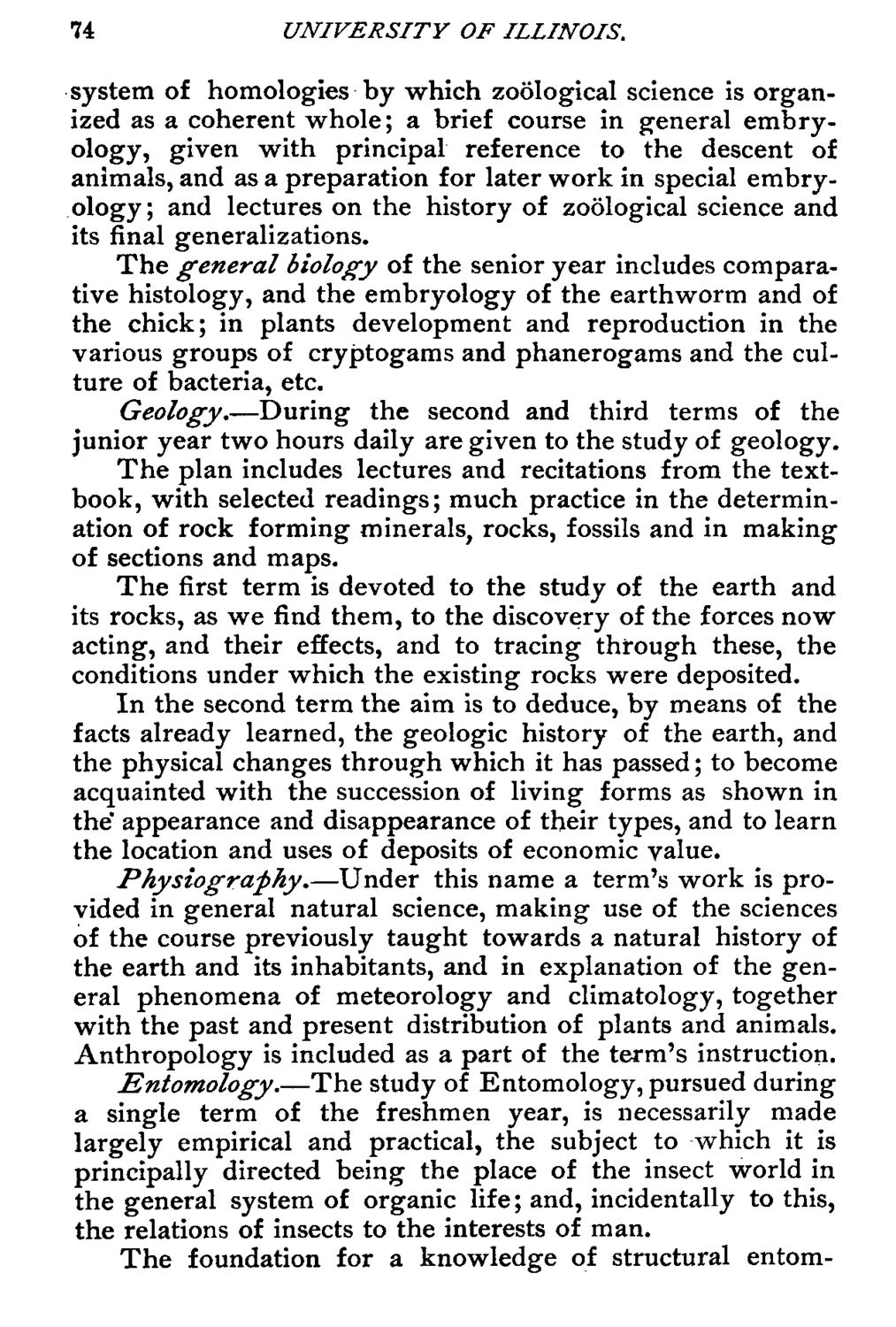| |
| |
Caption: Course Catalog - 1887-1888
This is a reduced-resolution page image for fast online browsing.

EXTRACTED TEXT FROM PAGE:
74 UNIVERSITY OF ILLINOIS. system of homologies by which zoological science is organized as a coherent whole; a brief course in general embryology, given with principal reference to the descent of animals, and as a preparation for later work in special embryology ; and lectures on the history of zoological science and its final generalizations. The general biology of the senior year includes comparative histology, and the embryology of the earthworm and of the chick; in plants development and reproduction in the various groups of cryptogams and phanerogams and the culture of bacteria, etc. Geology.—During the second and third terms of the junior year two hours daily are given to the study of geology. The plan includes lectures and recitations from the textbook, with selected readings; much practice in the determination of rock forming minerals, rocks, fossils and in making of sections and maps. The first term is devoted to the study of the earth and its rocks, as we find them, to the discovery of the forces now acting, and their effects, and to tracing through these, the conditions under which the existing rocks were deposited. In the second term the aim is to deduce, by means of the facts already learned, the geologic history of the earth, and the physical changes through which it has passed; to become acquainted with the succession of living forms as shown in the" appearance and disappearance of their types, and to learn the location and uses of deposits of economic value. Physiography.—Under this name a term's work is provided in general natural science, making use of the sciences of the course previously taught towards a natural history of the earth and its inhabitants, and in explanation of the general phenomena of meteorology and climatology, together with the past and present distribution of plants and animals. Anthropology is included as a part of the term's instruction. Entomology.—The study of Entomology, pursued during a single term of the freshmen year, is necessarily made largely empirical and practical, the subject to which it is principally directed being the place of the insect world in the general system of organic life; and, incidentally to this, the relations of insects to the interests of man. The foundation for a knowledge of structural entom-
| |